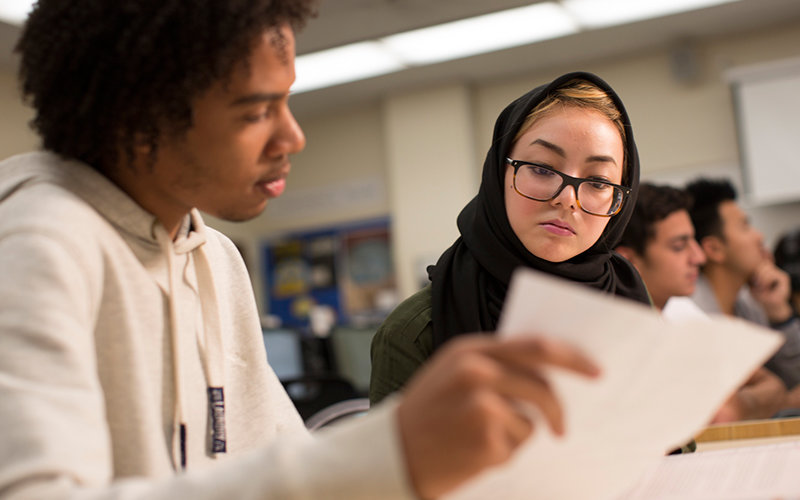
Assessment is not just about testing. At Cal State Fullerton, faculty and administrators are strengthening ongoing assessment efforts to improve student learning outcomes.
“Our goal is to make assessment an integrated part of teaching and learning across campus,” says Su Swarat, director of the Office of Assessment and Educational Effectiveness. “It is an important component for accreditation but there’s much more at stake. It’s our responsibility to continuously look at what we are doing, to reflect on what is working well, as well as how we can go about improving student learning and ensuring their success.”
Today, assessment has wide participation across the campus community, beyond academics to include student affairs, administration, even up to the President’s Office, adds Swarat.
Thanks to recently awarded Assessment Inquiry Grants, funded by the Office of Assessment and Educational Effectiveness, faculty members are developing programs and efforts to gain more understanding into what and how students learn. Projects include tracking a single student learning outcome (SLO) from introductory to advanced classes; exploring SLOs from online courses using statistical research methods; and assessing the preconceptions and ideas students bring into a program.
Sergio Lizarraga, associate professor of art, was awarded a grant to develop an interactive faculty response form — “an electronic checklist organized in such a way as to be easy to fill out and easy to evaluate.
“The prototype was built to establish the idea of assessment and provide clear objectives in the education of our students, not just in one class but across the program. It was developed to capture and tabulate multiple levels of achievement for each assessment criteria,” Lizarraga explains. “The goal is to facilitate a better understanding of classroom activities and their relationship to learning goals.”
He hopes that not only will faculty members use it for curricular development and self-reflection, but also “to participate in future calibration by photographing or providing digital projects to be used in order to distinguish outcome levels.”
In addition, Lizarraga created the form so it could be modified to meet the needs for other programs throughout the College of the Arts, and potentially, across campus. He’s already heard of interest in general education courses.
For Jessica Stern, associate professor of history, the goal is not just learning if students are reaching expected learning goals, but why they may not.
“I was looking for a way to figure out what students weren’t mastering and why,” she says. The educator is using her grant to fund surveys of students entering the department’s senior research seminar course.
“We want to understand factors that affect a student’s ability to write a satisfactory paper in the senior seminar. How well are students prepared? How do they feel about their own skills? How much effort are they investing in the course?” says Stern. “We are hoping that answers to these questions will explain how well students do in the course, and help us figure out ways to help them.”
Her first survey effort was indirect, anonymous; this spring, she is matching the surveys with the students who answered the questions for specific clues as to how each student is doing in the classroom.
“I wouldn’t be able to do this without the support of a grant like this,” says Stern. “By learning more about her students, and developing ways to help them overcome potential conflicts, “I can still emphasize teaching them vital skills.”
Other grant recipients (individual or team) are:
- Natalie Bursztyn, assistant professor of geology
- Sinjini Mitra, assistant professor of information systems and decision sciences
- Ioakim Boutakidis, associate professor, and Claudia Pineda, assistant professor, child and adolescent studies
- Minerva S. Chavez and Fernando Rodriguez-Valls, associate professors, and Grace Cho, professor, secondary education
- Beena Ajmera and Phoolendra Mishra, assistant professors of civil and environmental engineering